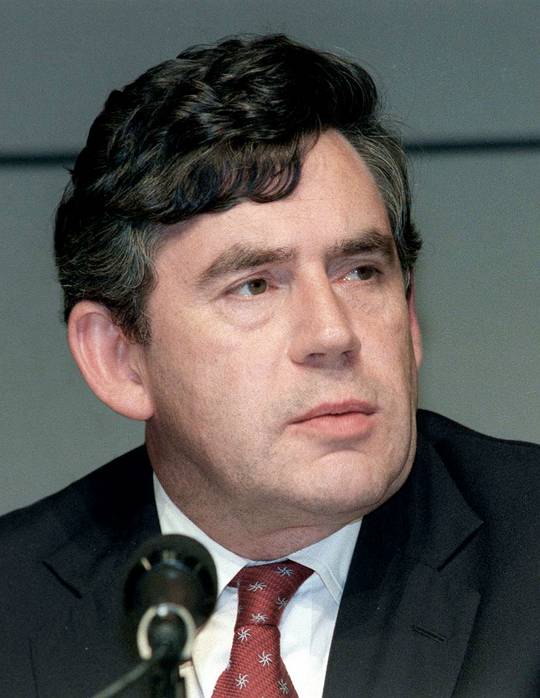Brown (1951- ) was the son of a Church of Scotland minister, educated at state schools and the University of Edinburgh, where he obtained a first-class degree and a PhD in history, as well serving as Rector for three years. He entered Parliament as MP for Dunfermline East in 1983, served as Shadow Chancellor from 1992, gave way semi-voluntarily to Blair in the 1994 leadership election, became Chancellor of the Exchequer himself in 1997 and succeeded Blair in June 2007.
As Chancellor, Brown should be given modest credit for the Blair government’s relatively restrained performance in 1997-2007, while not being wholly blamed for its collapse thereafter (public spending shot up from 39.1% of GDP in fiscal 2007 to 43.8% of GDP in fiscal 2010, leaving a big problem for Brown’s successor). He should also get credit for Britain avoiding the euro, which Blair would have joined. Brown also as his first act as Chancellor made the Bank of England independent; this seemed a good idea at the time but resulted in a major financial crisis followed by a decade of negative real interest rates.
Brown nearly went for an early election in autumn 2007, which he would probably have won, but decided against. This was a mistake, because the crisis of 2008 then hit. This brought the collapse of several banks, as well as throwing the budget even more out of kilter, although Brown’s international initiative in 2009 to recapitalize the world’s banking system was well received. Brown’s remaining period as prime minister involved a fight against a recession, financial difficulties, and attempted coups by his colleagues, so when the election came in May 2010, he lost it.
Brown’s term as Chancellor was above average by Labour standards, but as prime minister, he proved to lack the equable temperament for the job. He should rank near the bottom of the list.
